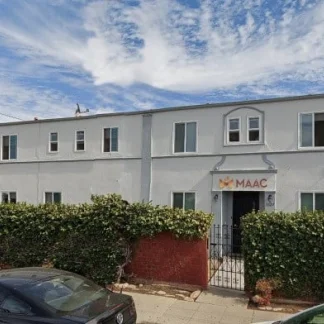Alvarado Parkway Institute Behavioral Health System Outpatient Services
Alvarado Parkway Institute Behavioral Health Systems Outpatient Treatment is loc...
Casa De Milagros is a residential addiction treatment center for women located in San Diego, California. Their programming incorporates a whole person view, and takes into consideration what foundational tools must be in place to succeed post treatment.
Casa De Milagros provides residential treatment services to women.
The residential treatment program at Casa De Milagros is for women who need a high level of structure and support at the beginning of their recovery journey. This program includes a culturally sensitive approach to treatment, considering various backgrounds and beliefs. Individual and group counseling is provided, along with evidence based treatments such as cognitive behavioral therapy, dialectical behavioral therapy, and various forms of educational classes that highlight common issues surrounding addiction. 12 Step meetings are optional, but available to all who are interested. Casa De Milagros also provides no cost job training and certifications, along with job readiness training. For those who need medications, Medication Assisted Treatment can be provided.
Medication Assisted Treatment provides medications along with comprehensive medical, psychiatric, and behavioral counseling. FDA approved medications are used to support withdrawal from opioid drugs and to help maintain long term abstinence. By combining medication with mental health treatment, a greater chance of success is achieved for long term abstinence.
The 12 Step program is a common recovery model based on Alcoholics Anonymous (AA). Beginning steps involve admitting powerlessness over the addiction and creating a plan for recovery based in a Higher Power. Middle steps include self examination and making amends to those who’ve been hurt by the addiction. The later steps include continuing to take personal inventory while living a life of recovery and supporting others in doing the same.
Additional 12 Step groups include Narcotics Anonymous (NA), Cocaine Anonymous (CA), Dual Recovery Anonymous (DRA), Sex and Love Addicts Anonymous (SLAA) Gamblers Anonymous (GA), to name a few.
Contact us for more information: (619) 262-4002

Connect with MAAC - Casa de Milagros by calling their admissions team directly.
(619) 262-4002 Website Get DirectionsGroup therapy is any therapeutic work that happens in a group (not one-on-one). There are a number of different group therapy modalities, including support groups, experiential therapy, psycho-education, and more. Group therapy involves treatment as well as processing interaction between group members.
In individual therapy, a patient meets one-on-one with a trained psychologist or counselor. Therapy is a pivotal part of effective substance abuse treatment, as it often covers root causes of addiction, including challenges faced by the patient in their social, family, and work/school life.
Life skills trainings involve all the skills a person must have in order to function successfully in the world. These include time management, career guidance, money management, and effective communication. Truly successful addiction recovery is based on the ability to not only live substance-free, but to thrive. Life skills teaches the practical necessities of functioning in society, which sets clients up for success in life, and therefore sobriety. During their stay, residents have access to community resources such as vocational training, food vouchers, continuing education and housing.
Recreational therapy (aka therapeutic recreation) uses creative and fun activities to help with addiction recovery. Recreational therapists lead patients in entertaining and engaging activities like sports or games; art (drawing, painting, sculpture); drama, music, and dance; and/or community outings (field trips) to improve patients' physical, social, and emotional well-being.
In individual therapy, a patient meets one-on-one with a trained psychologist or counselor. Therapy is a pivotal part of effective substance abuse treatment, as it often covers root causes of addiction, including challenges faced by the patient in their social, family, and work/school life.
Life skills trainings involve all the skills a person must have in order to function successfully in the world. These include time management, career guidance, money management, and effective communication. Truly successful addiction recovery is based on the ability to not only live substance-free, but to thrive. Life skills teaches the practical necessities of functioning in society, which sets clients up for success in life, and therefore sobriety. During their stay, residents have access to community resources such as vocational training, food vouchers, continuing education and housing.
Recreational therapy (aka therapeutic recreation) uses creative and fun activities to help with addiction recovery. Recreational therapists lead patients in entertaining and engaging activities like sports or games; art (drawing, painting, sculpture); drama, music, and dance; and/or community outings (field trips) to improve patients' physical, social, and emotional well-being.
Life skills trainings involve all the skills a person must have in order to function successfully in the world. These include time management, career guidance, money management, and effective communication. Truly successful addiction recovery is based on the ability to not only live substance-free, but to thrive. Life skills teaches the practical necessities of functioning in society, which sets clients up for success in life, and therefore sobriety. During their stay, residents have access to community resources such as vocational training, food vouchers, continuing education and housing.
Recreational therapy (aka therapeutic recreation) uses creative and fun activities to help with addiction recovery. Recreational therapists lead patients in entertaining and engaging activities like sports or games; art (drawing, painting, sculpture); drama, music, and dance; and/or community outings (field trips) to improve patients' physical, social, and emotional well-being.
Recreational therapy (aka therapeutic recreation) uses creative and fun activities to help with addiction recovery. Recreational therapists lead patients in entertaining and engaging activities like sports or games; art (drawing, painting, sculpture); drama, music, and dance; and/or community outings (field trips) to improve patients' physical, social, and emotional well-being.
Alvarado Parkway Institute Behavioral Health Systems Outpatient Treatment is loc...
Located in the Mission Valley district of San Diego, California, VA San Diego He...
MHS Center Star ACT is located in San Diego, California. They provide alcohol an...
CRASH’s Short Term I program, located in San Diego, California, offers residenti...